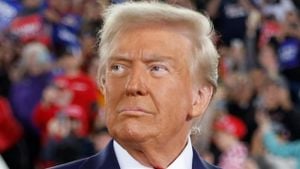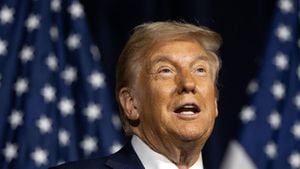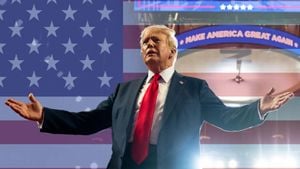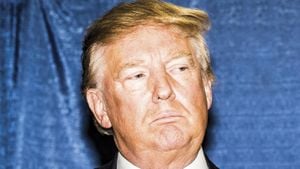France is presently facing considerable political turbulence following the recent snap election, which has stirred the pot of national politics and brought far-right factions closer to power. The election, called unexpectedly on June 19, was driven by President Emmanuel Macron’s quest to solidify his influence after his prior victory and subsequent challenges during his administration. With the political stakes high, the outcome has significant ramifications for both Macron and the future of France.
Leading up to this significant election, Macron's government struggled to push through various reforms aimed at rejuvenation, particularly focusing on pension reforms and economic recovery post-COVID. His experience with the pandemic had exposed rifts within the parliament, shifting power dynamics and leaving many vulnerable on various fronts. Recognizing the potential backlash, Macron presumably felt compelled to call for fresh elections as he sought to regain momentum and deflect criticism.
The movement toward these elections wasn’t merely routine; it intertwined with increasing public discontent over rising inflation rates and the slow recovery of the economy. Many French citizens felt isolated and abandoned by their government’s policies, leading to mounting frustrations. This, combined with heated discussions surrounding immigration and nationalism, paved the way for far-right political entities.
Stephane Ravier, representing the National Rally Party (Rassemblement National, RN), emerged as one of the key figures who capitalized on the public’s discontent. His rhetoric around immigration issues connected deeply with the electorates feeling vulnerable and neglected. According to Ravier, “People are tired of being told their concerns don’t matter,” reflecting widespread sentiments echoing through many French communities.
The snap election saw a notable surge of support for the far-right, largely credited to the unapologetic campaign style embraced by Ravier and his ilk. Reports indicated the RN made substantial gains, as many voters expressed their frustration with the traditional parties on both sides of the political spectrum. This was particularly evident as they targeted centrist policies associated with Macron's administration, riddled with accusations of elitism.
Across the political aisles, left-leaning parties also faced significant challenges, with many voters expressing dissatisfaction with their representatives' inability to connect with common interests. Jean-Luc Mélenchon, leader of the far-left party La France Insoumise, attempted to forge alliances to counter the RN’s rising influence, but without much success. The division among leftist parties became apparent as they struggled to unite under a common agenda, hindering their chances at the polls.
Conflict wasn’t limited to words; the atmosphere turned palpable as protests erupted across various French cities leading up to the election. People gathered, demanding economic justice and equity, urging their government to pay attention to the marginalized voices. The scenes reflected historic dynamics where economic strife and political tensions converged, significantly shaping the electoral discourse.
After the election, the fallout was immediate and palpable. Macron faced the consequences of placing trust in public perceptions, and many political analysts began questioning the sustainability of his presidency post-election. The political map has shifted, and with the far-right gaining momentum within the National Assembly, Macron’s ambitious vision now faces significant barriers.
With the newly formed Assembly, debates are expected to be fiercer. The far-right’s consistent gains have thrust them to meaningful positions, facilitating their capacity to challenge the Macron government on policies they deem unfavorable to the French populace. This newfound strength allowed them to introduce policy proposals targeting immigration reform, national identity, and stricter security measures.
Observers note how these developments could alter France's future: “This isn’t just about one election; we’re witnessing the rise of alternative voices struggling for representation,” asserted Alice Dufour, one of many political analysts evaluating the outcomes. Indeed, the shift seen during this snap election marks more than just electoral gains; it reveals the populace's urgent desire for change amid discontent.
The shockwaves of this political shift are being felt across Europe, as France has often been viewed as the frontline of political movements affecting the continent. The outcome could lead to similar ideological rifts burgeoning within neighboring nations experiencing their own socio-political upheavals.
While Macron’s party retains power, it now must navigate uncharted waters marked by increased opposition and public scrutiny. The President believes he can still rally support, stating, “We cannot yield to fear or despair. We must unite, even if the task is challenging,” attempting to maintain unity within his camp.
Critically, this election subscribes to the broader narrative of populism rallying against prevailing political structures, raising legitimate concerns about France's socio-economic future. A country already characterized by demonstrated divisions risks being pushed even farther apart if polarizing rhetoric continues to dominate the discourse.
Looking beyond France, the political tenor exemplified here resonates globally, showcasing similar movements across the world, where populism finds purchase on discontent and fears of marginalization. The European Union watches closely, contemplating the potential repercussions as far-right entities consolidate both power and influence.
The road forward for France seems laden with challenges requiring strategic vision and diplomatic finesse. Macron’s leadership could very well be tested as he maneuvers through opposition. The enduring question lingers though: can France find common ground amid rising divisions?



